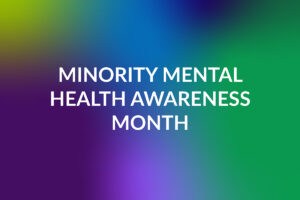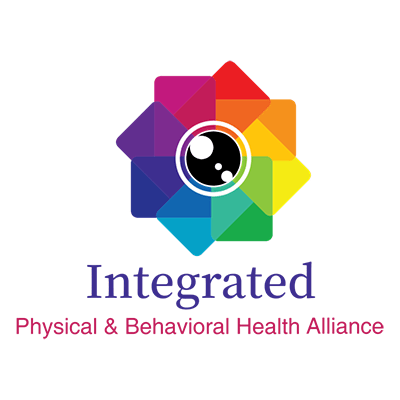When It’s Not the Most Wonderful Time of the Year: Navigating Depression Around the Holidays
By: Amy McConnell, LCSW & Holly Gregory, LCSW; DBH Candidates at CGI
 When a person is asked to describe what they envision the holiday season to look like, words such as joy, cheer, merry, jolly, and celebration often come to mind. Unfortunately, the holiday season can also usher in increased stress and depression. The National Alliance on Mental Illness (2014) found that 64% of people who have already been diagnosed with a mental illness report that the holidays contribute to worsening depression. This is an alarming statistic, and also does not account for those who may not have a diagnosis or those with the “holiday blues.”
When a person is asked to describe what they envision the holiday season to look like, words such as joy, cheer, merry, jolly, and celebration often come to mind. Unfortunately, the holiday season can also usher in increased stress and depression. The National Alliance on Mental Illness (2014) found that 64% of people who have already been diagnosed with a mental illness report that the holidays contribute to worsening depression. This is an alarming statistic, and also does not account for those who may not have a diagnosis or those with the “holiday blues.”
Not only are the holidays universally synonymous with positivity, nostalgia, and magic thanks to movies, music, retail, and advertising, but it also shines a glaring spotlight on those already living with depression. The pressure to be joyful, happy, and social increases dramatically during this time of year. In addition, the expectations of how people should feel or act is scrutinized. Sadness, dissatisfaction, financial hardships, loneliness, increased stress or pressure, and unrealistic expectations are just a few examples of what contributes to the holiday blues (NAMI, 2014).
Being inundated with COVID-19 adds another layer of social isolation, grief, and struggle. The pandemic does not discriminate. Everyone has been affected in one way or another. That is why it is imperative that we try to stay connected with our friends and family, recognize the warning signs of depression, and be able to identify ways to help alleviate the symptoms for loved ones or yourself.
Signs of Depression
- Fatigue, or feeling tired despite adequate sleep
- Tension and tension headaches
- Increased frustration or low frustration tolerance
- Loneliness or feeling isolated
- Sadness
- A sense of loss
(Greenstein, 2015)
Tips for Managing Depression Around the Holidays
- Take time to notice your feelings and allow them to happen.
- Stay in touch with friends and family via Zoom or safe in-person gatherings. Or, look for support communities, religious groups, or social events. Many of these have online options.
- Be realistic about your expectations for the holidays, and let go of the thought that they must be perfect.
- Try to set aside differences with family, and remember, this only needs to be short term. Choose a different time to discuss grievances.
- Determine and stick to a budget.
- Try not to procrastinate. Plan errands and activities in advance to prevent feeling overwhelmed.
- Say no. Accepting every holiday invitation or keeping up with everything on your to do list may increase feelings of stress.
- Keep up with your healthy habits. Add some healthy foods in, stick to your regular bedtime, and make room for exercise.
- Build in breaks.
- Talk to a therapist.
(Mayo Clinic, 2020)
A Note About Social Media
Social media around the holidays may increase or decrease stress, depending on how you use it. Many social media platforms allow you to hide posts or people that may be triggering, and there are options to do so temporarily or permanently. Before opting out entirely, consider that social media may provide connection to friends and family, as well as support groups, especially if you need a virtual option. Taking advantage of features to curate your newsfeed may allow you to stay connected without causing distress.
If you’re feeling depressed around the holidays, there are resources to help.
- To stay connected to friends and family virtually: https://zoom.us
- To learn more about depression and ways to cope or help someone else cope: https://www.nami.org
- Online therapy platforms: www.betterhelp.com or https://try.talkspace.com
- If you or someone you know is thinking about suicide: 1-800-273-8255 or text TALK to 741741
References
Greenstein, L. (2015). Tips for managing the holiday blues. Retrieved from
https://www.nami.org/blogs/
Mayo Clinic. (2020). Stress, depression, and the holidays: Tips for coping. Retrieved from
https://www.mayoclinic.org/
NAMI: National Alliance on Mental Illness. (2014). Mental health and the holiday blues. Retrieved from https://www.nami.org/Press-




























